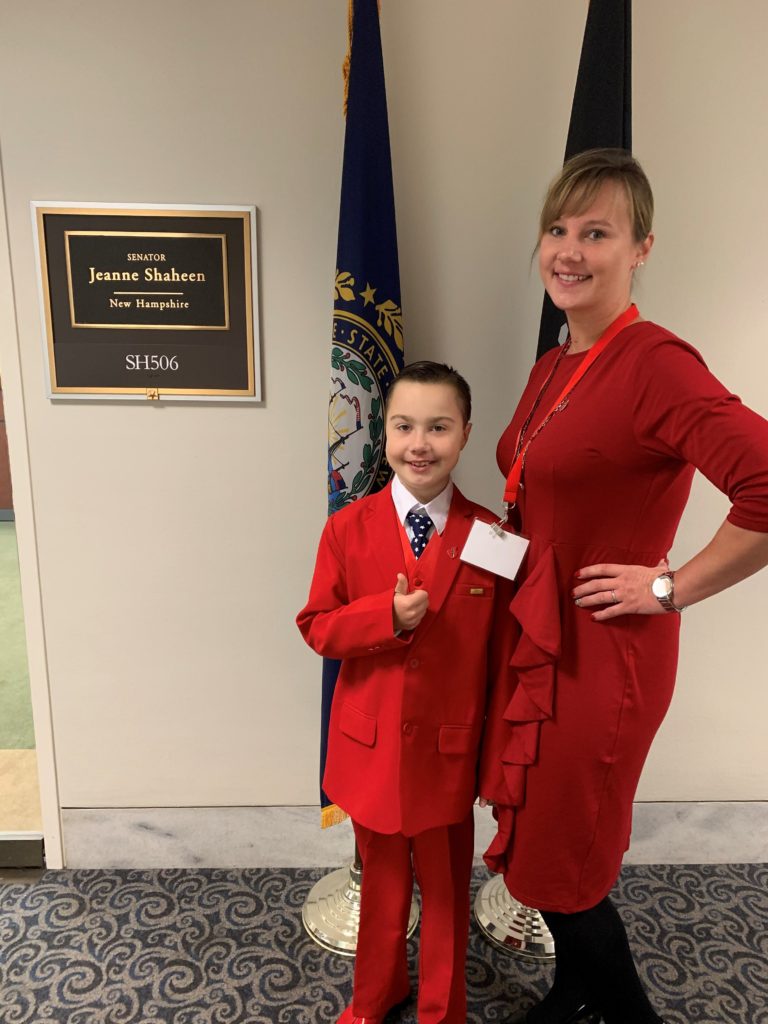Pittsfield resident Parker Bolton and his mom, Casey Bolton, visited Washington DC this week to lobby on behalf of the American Heart Association. Parker is 10 years old and a congenital heart defect and heart transplant survivor. The Boltons met with New Hampshire congressional members to advocate for policy change around restricting tobacco flavorings to reduce the want and need for today’s youth to smoke or vape, as well as for a change in Balance billing, and NIH federal funding of heart disease and stroke research.
 In New Hampshire, 23.8% of students have admitted to using an e-cigarette product. While some e-cigarette companies are removing select flavors from the market, mint and menthol flavors are still available and popular among youth. Flavors, including menthol, make tobacco products less harsh and more appealing to youth and other inexperienced tobacco users. 81% of youth who have ever used a tobacco product started with a flavored product. The American Heart Association is urging Congress and the administration to move forward without delay to remove all flavored e-cigarettes, including mint and menthol, from the market.
In New Hampshire, 23.8% of students have admitted to using an e-cigarette product. While some e-cigarette companies are removing select flavors from the market, mint and menthol flavors are still available and popular among youth. Flavors, including menthol, make tobacco products less harsh and more appealing to youth and other inexperienced tobacco users. 81% of youth who have ever used a tobacco product started with a flavored product. The American Heart Association is urging Congress and the administration to move forward without delay to remove all flavored e-cigarettes, including mint and menthol, from the market.
The American Heart Association is also asking for support behind legislation that would protect patients from financially crippling surprise medical bills. Nearly 60% of insured Americans have received a surprise medical bill for care they thought was covered by their insurance. Cardiovascular patients are particularly susceptible to these bills because of the unexpected and urgent nature of the event and the care. For example, more than 800,000 cardiovascular events occur each year outside of hospital settings.
Lastly, Casey and Parker are asking for the nation to continue the commitment to funding research for heart disease and stroke. Robust NIH–funded research remains our country’s best hope to discover innovative ways to prevent, diagnose, treat and ultimately develop cures for heart disease and stroke. Cardiovascular disease remains the leading cause of death for Americans, increased NIH funding will lead to a better understanding of cardiovascular disease and pave the path to longer, healthier lives worldwide.
